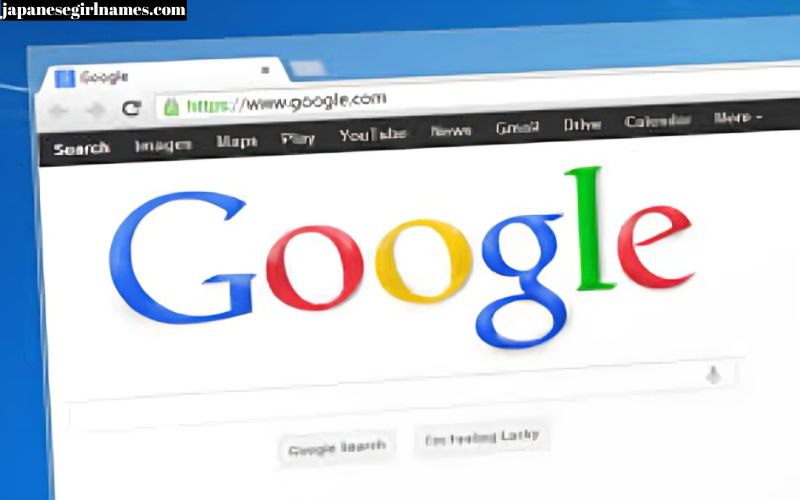Google’s algorithm is the gatekeeper to the first page. It evaluates relevance, authority, and user experience using hundreds of factors. David Aziz emphasizes aligning your strategy with these core elements. Knowing how Google prioritizes content is the first step to ranking high.
Relevance means matching user intent with your content. Authority comes from credible backlinks and trustworthy content. User experience includes fast load times and mobile-friendliness. Aziz’s approach starts with decoding these signals to optimize effectively.
Mastering the algorithm requires staying updated on changes. Google’s updates, like RankBrain and BERT, prioritize user intent. Regularly check Google Search Central for insights. This ensures your SEO tactics remain sharp and effective.
Mastering Keyword Research
Keyword research is the foundation of SEO success. David Aziz advocates for finding high-traffic, low-competition keywords. Tools like Google Keyword Planner and Ahrefs help identify terms your audience searches for. Start with phrases like “how to get on the first page of Google search David Aziz” for targeted results.
Focus on long-tail keywords for better conversion rates. For example, “SEO tips for ranking on Google 2025” is specific and less competitive than “SEO.” Analyze competitors’ keywords using SEMrush to uncover gaps. This ensures your content aligns with user intent.
Don’t just chase volume—prioritize intent. Are users seeking information or ready to buy? Aziz suggests balancing broad and niche keywords. Test and refine your list regularly to stay relevant and boost rankings.
Crafting High-Quality Content
Content is the heart of SEO. Google rewards in-depth, valuable articles that answer user queries. David Aziz stresses creating content that’s engaging and informative. Aim for 1,500–2,500 words to cover topics thoroughly.
Write for humans, not just search engines. Use a conversational tone and clear structure with H1, H2, and H3 headings. Incorporate multimedia like images and videos to reduce bounce rates. This signals quality to Google.
Evergreen content stays relevant over time. Update older posts with fresh data or examples to maintain authority. Aziz recommends addressing user pain points directly. This builds trust and improves your chances of ranking for “how to get on the first page of Google search David Aziz.”
Optimizing On-Page SEO Elements
On-page SEO fine-tunes your website for search engines. Title tags, meta descriptions, and headers are critical. Aziz suggests including your primary keyword, like “how to get on the first page of Google search David Aziz,” in the title tag. Keep it under 60 characters for optimal display.
Meta descriptions should be compelling and under 160 characters. For example: “Learn David Aziz’s SEO tips to rank on Google’s first page.” Use descriptive URLs, like “yourdomain.com/seo-tips-david-aziz,” to enhance clarity. Internal linking improves navigation and helps Google crawl your site.
Optimize images with descriptive alt text and compressed files. This boosts accessibility and page speed. Regularly audit on-page elements to ensure they align with Google’s standards. Small tweaks can lead to big ranking gains.
Building a Strong Backlink Profile
Backlinks are votes of confidence from other websites. Google sees them as proof of your content’s authority. David Aziz emphasizes earning high-quality backlinks from reputable sites. Guest blogging and influencer outreach are effective strategies.
Avoid low-quality or spammy links, as they can trigger penalties. Create shareable content, like infographics or guides, to attract natural backlinks. Tools like Ahrefs help monitor your backlink profile and spot opportunities.
Broken link building is another tactic. Find dead links on authoritative sites and offer your content as a replacement. Consistency in link-building efforts strengthens your domain authority over time.
Prioritizing Technical SEO
Technical SEO ensures Google can crawl and index your site. Aziz highlights site speed, mobile-friendliness, and security as key factors. Use Google PageSpeed Insights to identify slowdowns. Compress images and minimize code to improve load times.
Mobile-first indexing means your site must perform flawlessly on smartphones. Test responsiveness with Google’s Mobile-Friendly Test. An SSL certificate (HTTPS) is non-negotiable for security and rankings.
XML sitemaps and robots.txt files guide search engines. Regularly audit for crawl errors using Google Search Console. Fixing technical issues creates a solid foundation for ranking high.
Leveraging Local SEO
For businesses targeting specific areas, local SEO is a must. Aziz recommends optimizing your Google My Business profile with accurate details. Encourage positive customer reviews to boost credibility. Local keywords, like “David Aziz SEO expert in New York,” enhance visibility.
Consistency in name, address, and phone number (NAP) across directories is critical. Inconsistencies confuse Google and hurt rankings. Use tools like Moz Local to manage listings.
Create location-specific content, such as blog posts about local events. This connects with your community and signals relevance. Local SEO can fast-track your path to Google’s first page.
Enhancing User Experience (UX)
User experience is a major ranking factor. Google tracks bounce rates, session duration, and navigation ease. Aziz advises designing intuitive websites with clear menus and fast load times. Keep visitors engaged with compelling calls-to-action.
Engaging visuals, like infographics, increase time on page. Ensure content is scannable with short paragraphs and bullet points. A positive UX reduces bounce rates and signals quality to Google.
Test your site’s usability regularly. Tools like Hotjar reveal how users interact with your pages. Small improvements, like faster buttons or clearer links, can lift rankings significantly.
Monitoring and Adapting to Algorithm Changes
SEO is not set-and-forget. Google’s algorithm evolves, and Aziz stresses staying informed. Tools like Google Analytics and Search Console track performance metrics. Monitor keyword rankings and traffic to spot trends.
Algorithm updates, like BERT, emphasize user intent. Follow SEO blogs and Google Search Central for news. Adjust your strategy based on data and emerging trends.
A/B testing helps refine content and keywords. Experiment with different formats or CTAs to see what resonates. Staying agile ensures your site remains competitive.
Utilizing Social Signals and Engagement
Social media amplifies your SEO efforts. Sharing content on platforms like LinkedIn or Twitter drives traffic. Aziz notes that social signals indirectly boost rankings. Engaged followers clicking your links send positive signals to Google.
Encourage comments and shares to increase visibility. Create shareable content, like videos or infographics, to spark engagement. A strong social presence builds brand credibility.
Monitor social performance with tools like Hootsuite. Track which posts drive traffic and refine your approach. Consistent engagement strengthens your online authority.
FAQs
How long does it take to rank on Google’s first page?
Ranking times vary based on competition and effort. New content may take 3–6 months to rank. Consistent optimization speeds up results. Aziz emphasizes patience and quality.
What tools does David Aziz recommend for SEO?
Aziz suggests Google Keyword Planner, Ahrefs, and SEMrush for keyword research. Google Analytics and Search Console track performance. These tools provide data-driven insights.
Why are backlinks important for SEO?
Backlinks signal authority to Google. High-quality links from trusted sites boost your credibility. Aziz recommends guest posts and shareable content to earn them.
How does local SEO help with rankings?
Local SEO targets location-based searches. Optimizing Google My Business and using local keywords increases visibility. Aziz advises consistency in NAP details.
Conclusion
Achieving a first-page Google ranking is a strategic journey. This guide, inspired by David Aziz, covers the essentials: keyword research, quality content, and technical SEO. By mastering these, you can boost visibility and drive organic traffic. The focus keyword, “how to get on the first page of Google search David Aziz,” reflects proven tactics for success.
From crafting engaging content to building backlinks, each step matters. Local SEO and user experience further enhance your chances. Regular monitoring and adaptation keep you ahead of algorithm changes. Aziz’s approach emphasizes quality, consistency, and data-driven decisions.
SEO is a long-term investment. Results take time, but the payoff is worth it. Follow these strategies to climb Google’s rankings and grow your online presence. Start implementing today, and watch your site rise to the top.
For More Details, Visit: JapaneseGirlNames




